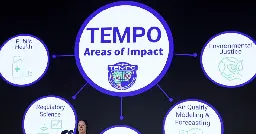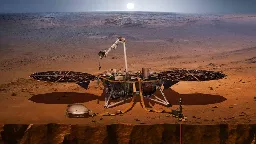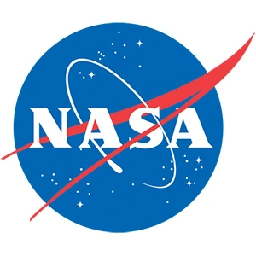NASA reveals pollution maps gathered by the TEMPO space instrument
NASA has published the first maps from its new space-based pollution instrument, TEMPO (Tropospheric Emissions: Monitoring of Pollution).

NASA Live Today: Climate Change, In-Flight Education Events, Summer Heat
cross-posted from: https://lemmy.world/post/3184736
> NASA Live > > All times U.S. Eastern Daylight Time, which equates to UTC-4. > > NEXT LIVE EVENTS > > Monday, August 14 > > 11 a.m. – News conference with NASA Administrator Bill Nelson, NASA climate experts, and the National Oceanic and Atmospheric Administration (NOAA) on the latest climate data findings > > 12:10 p.m. – ISS Expedition 69 in-flight > educational event for Kingfisher High School in Kingfisher, Oklahoma with NASA flight engineers Frank Rubio and Steve Bowen > > 1:50 p.m. – ISS Expedition 69 in-flight educational event for Odyssey Academy in Galveston, Texas with NASA flight engineers Frank Rubio and Steve Bowen > > 3:30 p.m. – NASA Science Live discusses the summer of record-breaking temperatures
NASA Live Today: Climate Change, In-Flight Education Events, Summer Heat
NASA Live
All times U.S. Eastern Daylight Time, which equates to UTC-4.
NEXT LIVE EVENTS
Monday, August 14
11 a.m. – News conference with NASA Administrator Bill Nelson, NASA climate experts, and the National Oceanic and Atmospheric Administration (NOAA) on the latest climate data findings
12:10 p.m. – ISS Expedition 69 in-flight educational event for Kingfisher High School in Kingfisher, Oklahoma with NASA flight engineers Frank Rubio and Steve Bowen
1:50 p.m. – ISS Expedition 69 in-flight educational event for Odyssey Academy in Galveston, Texas with NASA flight engineers Frank Rubio and Steve Bowen
3:30 p.m. – NASA Science Live discusses the summer of record-breaking temperatures
Mars is rotating more quickly, NASA mission finds
Mars spins a little more quickly each year, according to data collected by NASA’s now-retired InSight lander.

> Astronomers determined that the planet’s spin is increasing by about 4 milliarcseconds per year², or shortening the length of a Martian day by a fraction of a millisecond per year. A Martian day lasts about 40 minutes longer than a day on Earth. > >The increased acceleration seems incredibly small, and researchers aren’t quite sure what is causing it. However, they suggest it might be due to ice accumulation at the Martian poles or the rise of landmasses after being covered in ice. When a planet’s mass shifts in this way, it can cause the planet’s spin to accelerate.
Hey, it's me, that guy you replied to, now on lemmy.world

